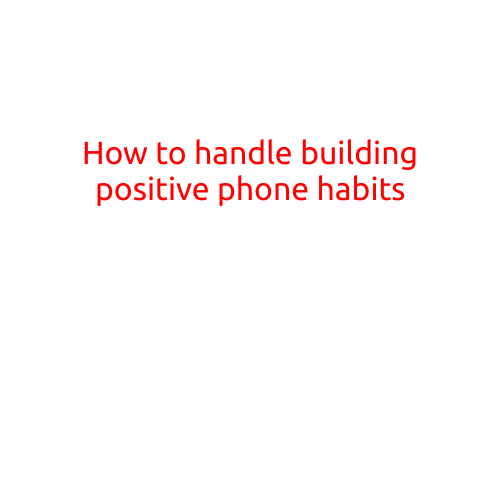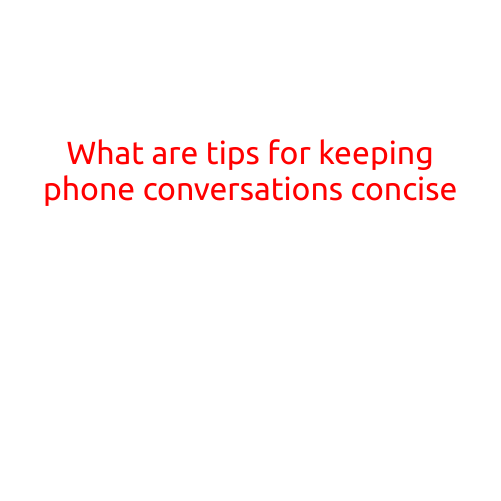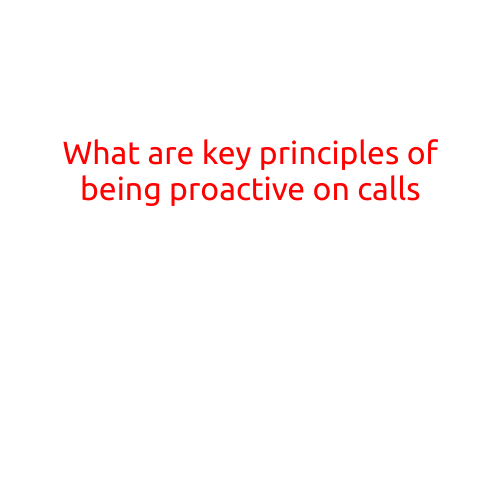
How to Handle Building Positive Phone Habits
In today’s digital age, our phones have become an integral part of our daily lives. Constantly connected, we’re constantly looking at our screens, scrolling through social media, and clicking on notifications. While our phones have many benefits, excessive phone use can have negative effects on our mental and physical health, relationships, and productivity.
Building positive phone habits is essential to maintaining a healthy balance between technology use and real-life interactions. In this article, we’ll explore the importance of phone habits, common pitfalls to avoid, and practical strategies to help you develop a positive phone routine.
Why Positive Phone Habits are Important
- Improved mental health: Excessive phone use has been linked to increased stress, anxiety, and depression. By setting limits on your phone use, you can reduce feelings of overwhelm and anxiety.
- Enhanced relationships: Constantly staring at your phone can damage relationships with family and friends. Positive phone habits help you prioritize face-to-face interactions and communication.
- Increased productivity: Distracted from phone notifications, you can focus on important tasks, leading to increased productivity and efficiency.
- Better sleep: Exposure to screens and blue light before bed can disrupt sleep patterns. By establishing a phone-free bedtime routine, you can improve the quality of your sleep.
Common Pitfalls to Avoid
- Mindless scrolling: Constantly checking social media, news, or email without a specific purpose or goal.
- Overreliance on technology: Using your phone as a primary means of communication, entertainment, or escape.
- Notifications overload: Letting notifications control your attention and behavior.
- Insufficient phone breaks: Failing to take regular breaks from your phone, leading to burnout and disconnection.
Strategies for Building Positive Phone Habits
- Set boundaries: Establish specific times for phone use, such as during meals or an hour before bed. Use phone trackers or apps to monitor and limit your screen time.
- Prioritize apps: Identify essential apps and use them intentionally. Delete or remove unnecessary apps to reduce distractions.
- Schedule phone-free time: Set aside time each day for activities that don’t involve your phone, such as reading, exercise, or spending time with loved ones.
- Create a phone-free zone: Designate a phone-free area in your home, such as the dinner table or living room, to promote face-to-face interaction and reduce distractions.
- Practice mindfulness: Pay attention to your phone use, recognizing when you’re mindlessly scrolling or reaching for your phone out of habit.
- Find alternative relaxation methods: Instead of reaching for your phone when stressed, try deep breathing, meditation, or journaling.
- Reward yourself: Celebrate small victories by rewarding yourself with non-screen activities, such as taking a walk or practicing yoga.
Conclusion
Building positive phone habits takes time, commitment, and self-awareness. By understanding the importance of phone habits, recognizing common pitfalls, and implementing strategies for change, you can create a healthier, more balanced relationship with your phone. Remember, it’s not about cutting out technology entirely, but about using it intentionally and responsibly. By doing so, you’ll be better equipped to manage distractions, improve your mental and physical health, and cultivate stronger relationships.





